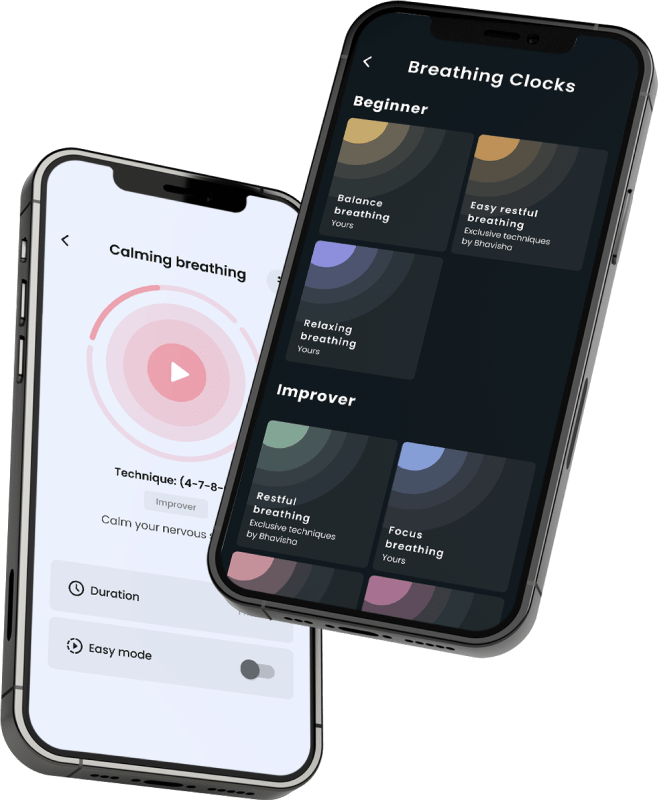Stress Management 101: How To Manage Stress in Life | Yours

That simple little word stress can have a profound impact on how you feel and how you ultimately end up living your life. Stress management is an important part of maintaining mental health as a whole, as well as overall physical health.
If left unchecked, stress can lead to feelings of depression or anxiety, impaired concentration, short-term memory loss, increased susceptibility to colds and other illnesses, changes in sleep patterns or overeating. If you see yourself in this then it's time to take back control and relieve the stress that has been controlling you for so long!
What is stress?
Stress is a feeling of emotional or physical tension. It can come from any event that you feel frustrated, angry or nervous about. In some incidents stress can actually benefit your body by giving it more energy for something important like avoiding danger - where we get the well-known 'flight or fight's response from - but when it is too intense and lasts too long, the repeated feelings of despair could start to wear on your body and mind until they are no longer able to function properly.
What causes stress?
There are many factors which can cause stress. Stressful situations can be attributed to a major upheaval in important life events such as divorce or unemployment. Or it could be certain irritations such as feeling undervalued at work or arguing regularly with friends or family members.
The most common issues surrounding stress involve work, money matters and relationships with those closest to us - partners, friends or family. But it's worth noting that sometimes there are no obvious causes of stress, and there may be little rhyme or reason for the way we feel.
What happens to my body when I experience stress?
Stress is your body's reaction to something perceived as a threat happening externally and against your control. When 'danger' is near the body essentially starts to go into overdrive. Your brain sends out a signal that it's not happy and as a result, your blood pressure rises, heart starts pounding and breathing quickens. All-in all, stress levels sky rocket!
More dangerously, stress hormones including cortisol and adrenaline are released to help the body respond to the 'threat' and decided how it will act. When these stress hormones are released regularly it could have a devastating impact on long-term mental and physical health.
What can short-term stress lead to?
When stress is experienced in short bursts or not particularly regularly, physical symptoms include raised blood pressure, increase sweating, insomnia and a change of appetite or sex drive. Stress hormones release fat and sugar to help aid the 'fight or flight' response which in turn can lead to headaches, nausea, muscle fatigue and indigestion.
Behaviourally, the sufferer may feel they are experiencing more angry outbursts, lack of patience and motivation, fatigue and social withdrawal. If the stress is inhibiting the person's life to the point where they feel they need a 'quick fix', they may turn to drugs and alcohol. We know that good work life balance, a decent night's sleep, a healthy diet and recognising the triggers will all help with the management of stress.
What can prolonged stress lead to?
Long-term stress or chronic stress is a more intense form of stress that wear sufferers down over a longer period of time - usually months or sometimes years. Because of the body's constant release of stress hormones and the physical affects of this release alongside an ongoing increase in heart rate and blood pressure, chronic stress can contribute to long-term issues for the heart and blood vessels. It takes a huge toll on the body and long-term risks can include high blood pressure (hypertension), heart attack, or stroke.
The affects on mood can be just as devastating with anxiety and depression being potential mental mental issues to look out for. Chronic stress should be managed with professional medical help.
What are signs of stress?
As many people have experienced stress or a stressful situation at some point in their life, the signs may be easy to spot - and knowing these triggers remain important - however there are a few you may not be aware of. These are the common signs as recognised by the NHS:
- Headaches or dizziness - the blood vessels in your head enlarge when you're anxious or frustrated causing headaches and giddiness.
- Muscle tension or pain - adrenaline and cortisol cause our muscles to tense up ready for action when we're stressed out.
- Stomach problems - from IBS and stomach ulcers, to bloating, diarrhoea and constipation, stress can be a menace for our digestive systems. We might either need to use the toilet more, or alternatively it can lead us to feeling more blocked up and completely slow down the process.
- Chest pain or a faster heartbeat - the surge of adrenaline makes your heart beat faster and too much can result in chest pain.
- Sexual problems - you may find a lack of libido is affecting everyday life as well as erectile dysfunction when you do find yourself wanting sex.
- Lack of concentration - general fatigue and physical exhaustion make it hard for us to concentrate and hold attention on a task or subject.
- Struggling to make decisions - exhaustion and low energy levels leave us feeling indecisive and not knowing if we're coming or going.
- Feeling generally overwhelmed - there may be a feeling of everything being too much to cope with. Simple tasks you used to barely think about have now become monumental and you feel you've got a mountain to climb when you wake up in the morning.
- Constantly worrying - again, feeling overwhelmed can leave us worrying about minor - or major - events in our lives. It's hard to get perspective and you may feel you're losing your grip on your own life.
- Forgetting everyday things - the brain can have a hard time remembering things no matter how big or small when we're stressed and feel we have a brain full of anxious thoughts.
How to manage stress
How to combat stress can be really tricky for many people but there are many techniques and strategies to try out to make everyday life just a bit easier. The fundamental step is to take back some control over those matters you find stressful but that you can control. And it's more than you might think.
- Regular physical activity - whether it's jogging, dancing or just walking, we're sure you'll reap the rewards of all the happy hormones released and they'll stay with you. Plug in your favourite songs at the same time and try to zone out to a happy place. A quickened heart rate and blood flow increasing through your veins helps physical and mental health.
- Try out relaxation techniques - yoga, deep breathing or meditation have all been proven to aid mental health and stress levels via surging endorphins and taking general 'me time' out of your day. Try clearing your head with the videos and courses on offer through Yours app and find something tailored to you and your needs, however much time you have.
- Try to keep a sense of humour - it be might easier said than done but by keeping a perspective on your life and what's brilliant about it can help you laugh off or look beyond times of stress. Some find keeping a gratitude journal is really helpful. Write down all the things and people you're thankful for and turn to this page when you feel a stressful moment coming on.
- Spending time with family and friends - our loved-ones can be brilliant at picking us up and providing vital emotional support when we're down. Make sure you allow them to clear your head and think about different things over a meal, coffee or a walk. Sharing problems is also great - tell them your woes and listen to theirs. You never know what someone else's perspective could do to help you and they might feel the same about hearing your opinions too.
- Me time - remember what makes you happy and set aside time for it when you can. Music, socialising, cinema trips and reading can all provide happiness and time away from stress triggers. Life isn't all about work.
- Healthy diet - avoid caffeine, alcohol and drugs like the plague and dose up on healthy balanced meals with lots of colour and flavour.
When to seek help
If you've tried some of the tips mentioned but you don't feel you're getting any better then see your doctor. He or she may refer to your a qualified professional or it may be a diagnosis that's altogether different from stress but they will help identify the causes and lead you on the path of healing.

